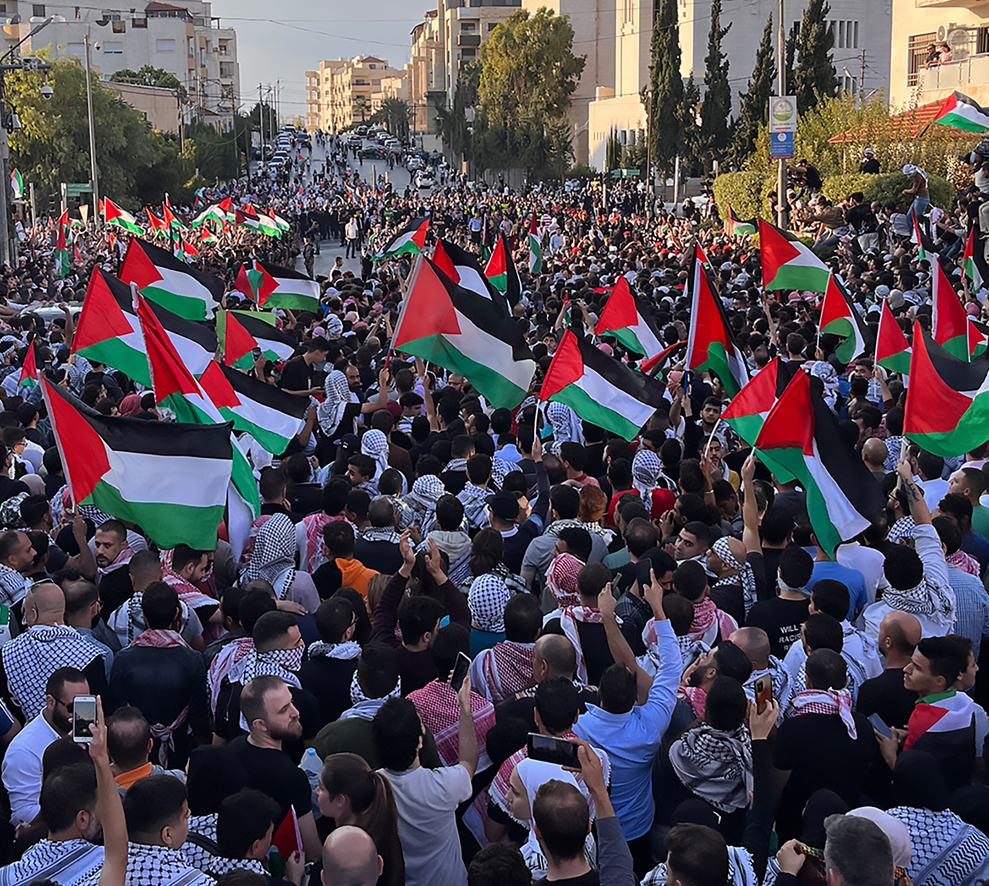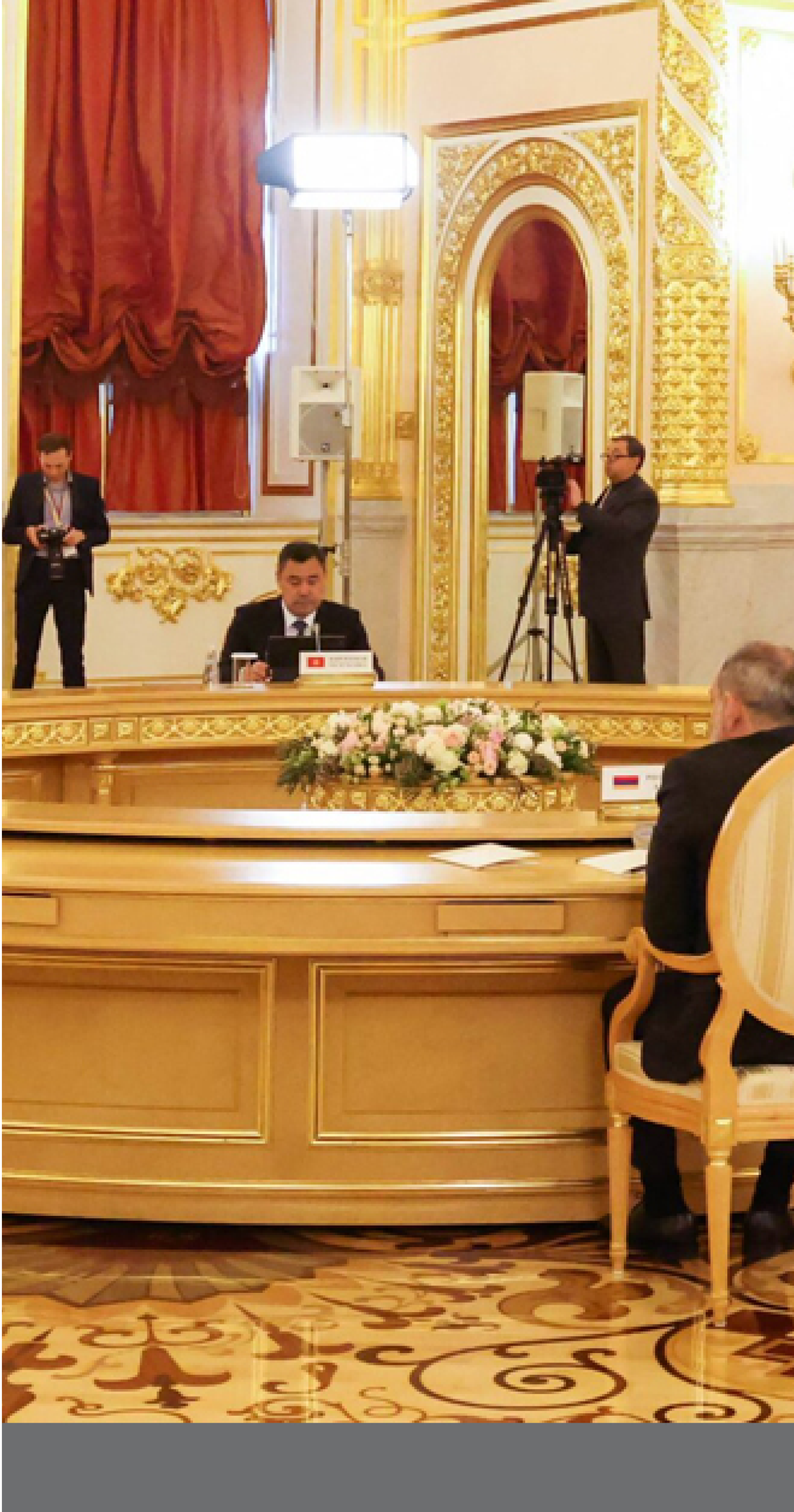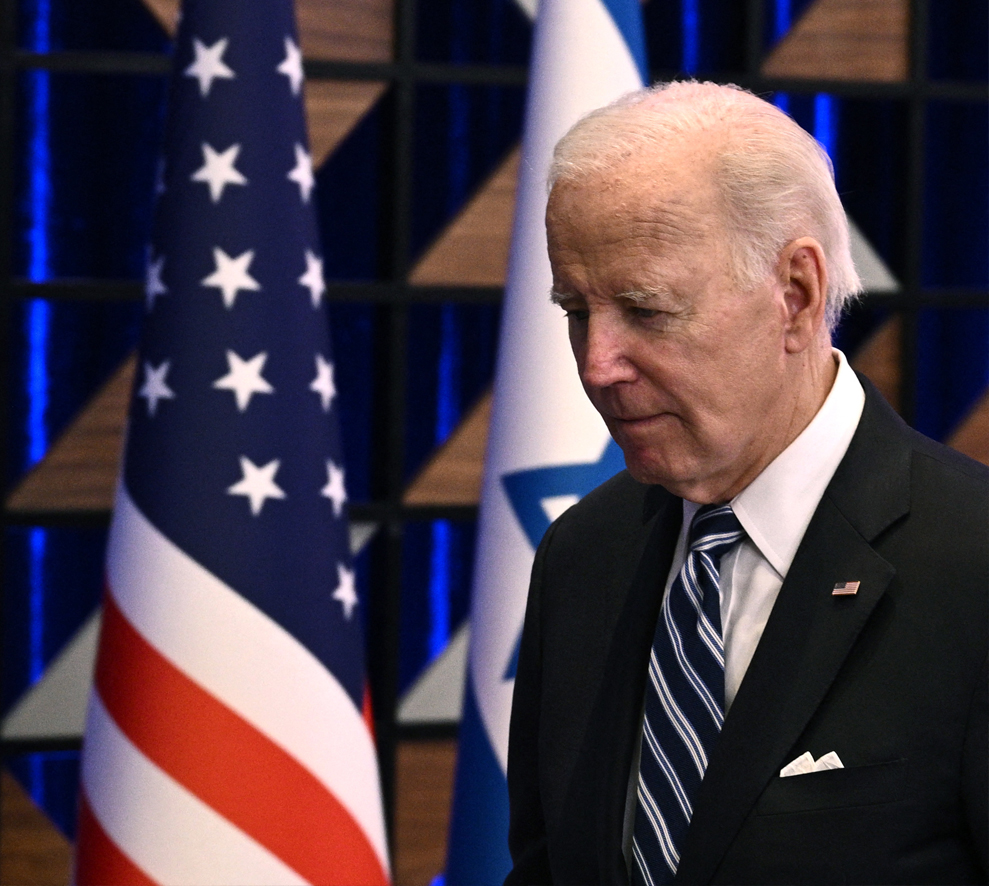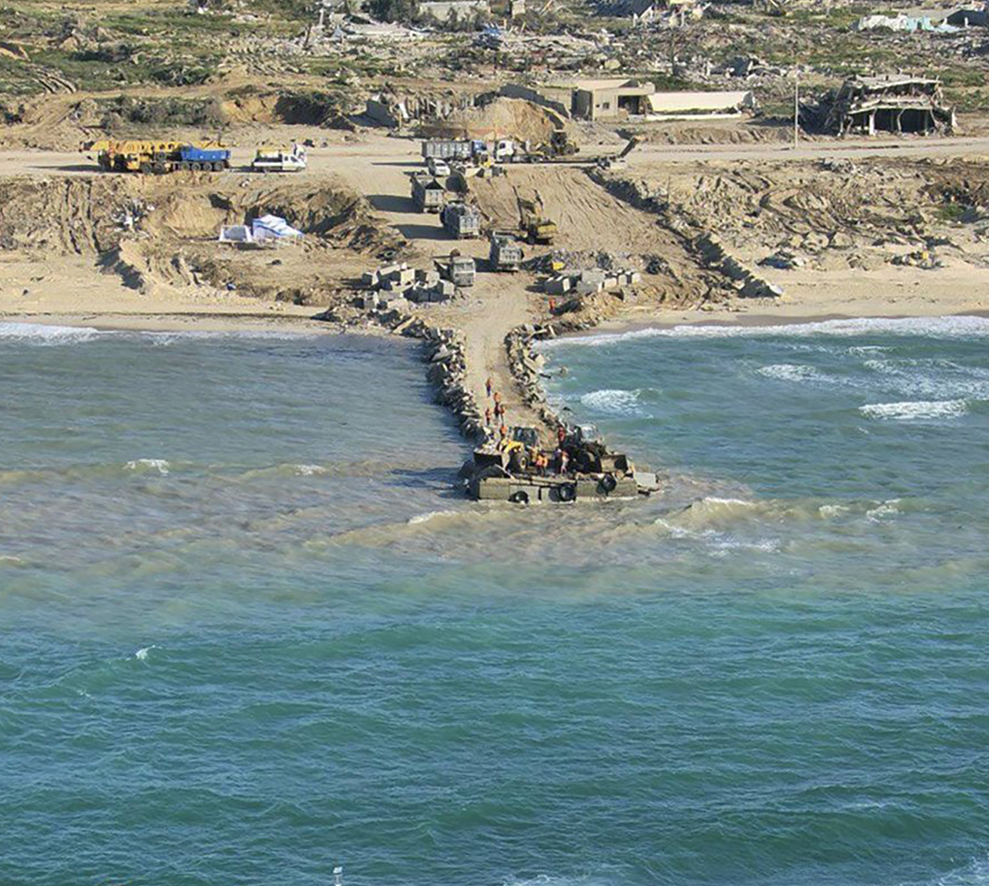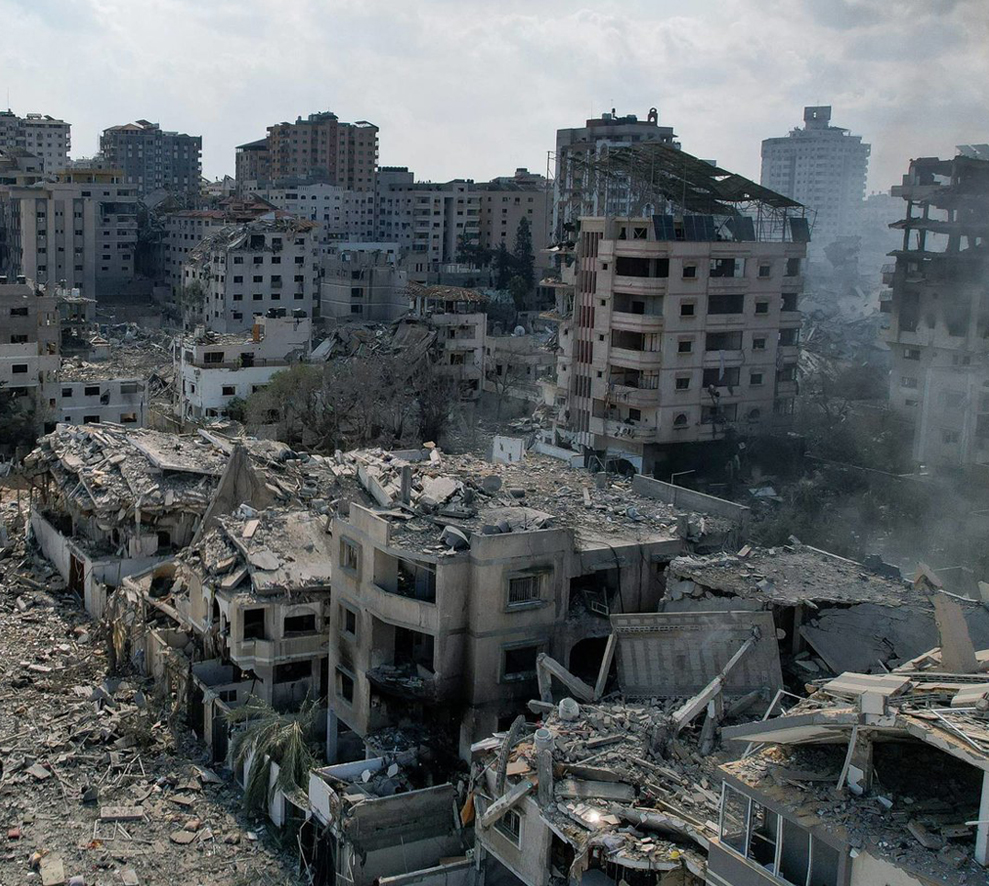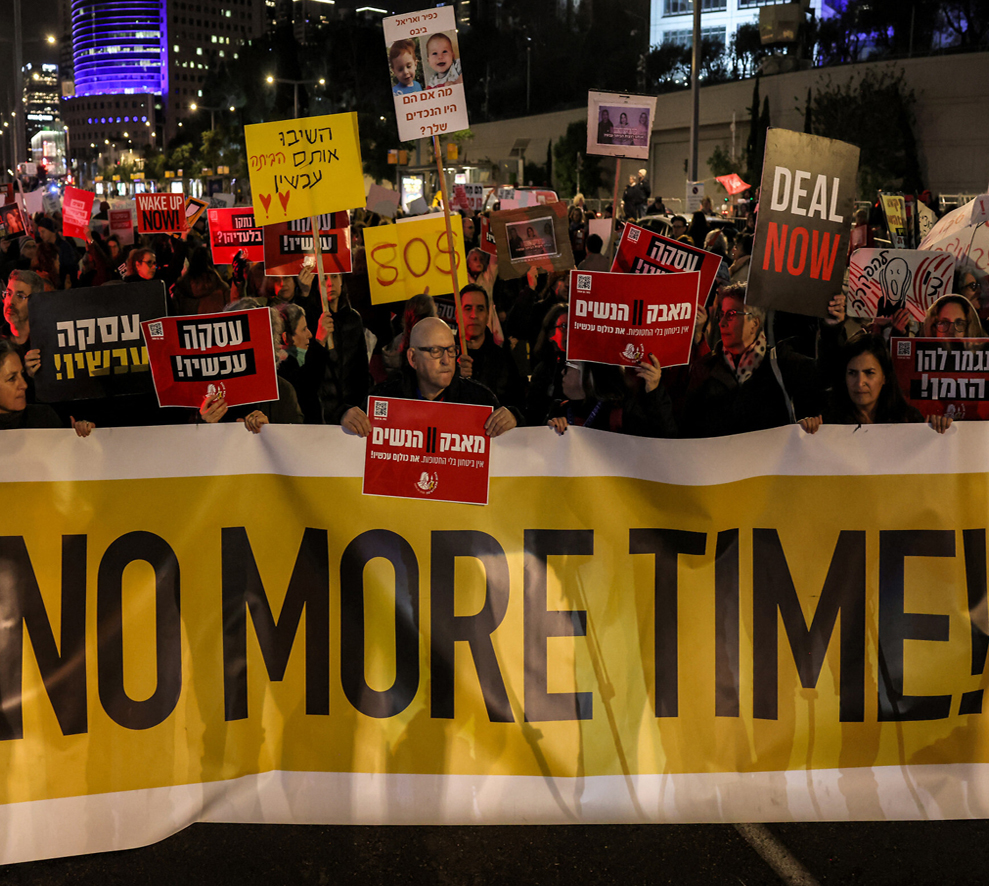The Israeli war on the Gaza Strip has entered its second month. The conflict began on October 7 when Hamas, along with other armed factions, launched attacks known as “Toofan Al-Aqsa” (Al-Aqsa Flood) against settlements and military bases in the Gaza Envelope. This resulted in approximately 1,200 casualties, close to 5,000 people injured, and more than 200 taken hostage. In response, Israel declared a “state of war” and initiated a major military operation called “Iron Swords,” involving air and ground campaigns. This has led to the deaths of 15,000 Gaza residents, unprecedented humanitarian conditions, and extensive destruction, particularly in the north of the Gaza Strip.
The Jordanian public opinion responded swiftly to the war with news, footage, and images of the Toofan Al-Aqsa operation circulating widely. However, it was also significantly influenced by what they viewed as an extreme Israeli reaction. The scale of popular events in solidarity with the people of the Gaza Strip, witnessed in various Jordanian cities and provinces, was noteworthy.
As the war enters what expects expect will be a deeper and more complex phase, Strategiecs Think Tank conducted an opinion poll on November 14, 2023. The poll included a sample of opinion leaders in Jordan—former officials, academics, experts, and specialists—to gauge their impressions concerning the war on the Gaza Strip and what this war may portend in the future.
Opinion Poll Axes
First Axis: “Toofan Al-Aqsa Storm as an Objective Response”
The opinion poll results revealed that 86.1% of the respondents viewed the Toofan Al-Aqsa operation as an objective response to Israeli violations, 9.9% disagreed with this view, and 4% preferred to remain neutral.
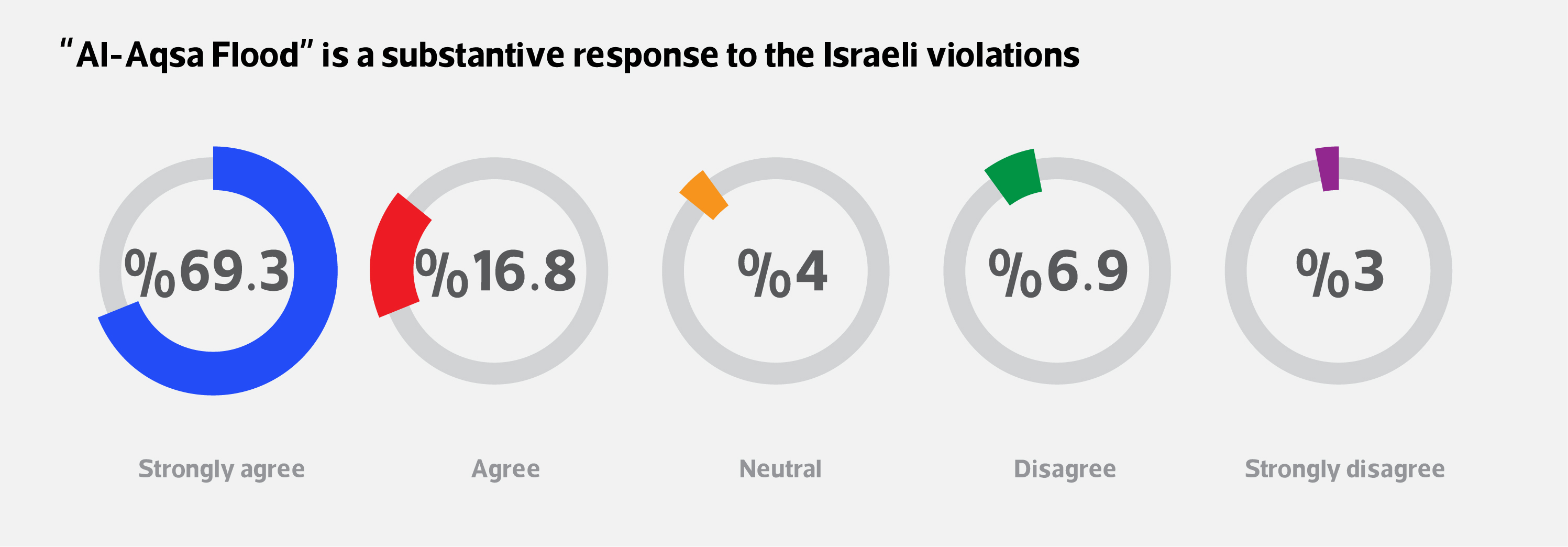
However, opinion leaders showed a division when asked about whether regional entities had a role in planning, training, or funding the operation. The result was an even split: 38.7% agreed, 38.6% did not see any role for regional entities, and 22.8% preferred to remain neutral.
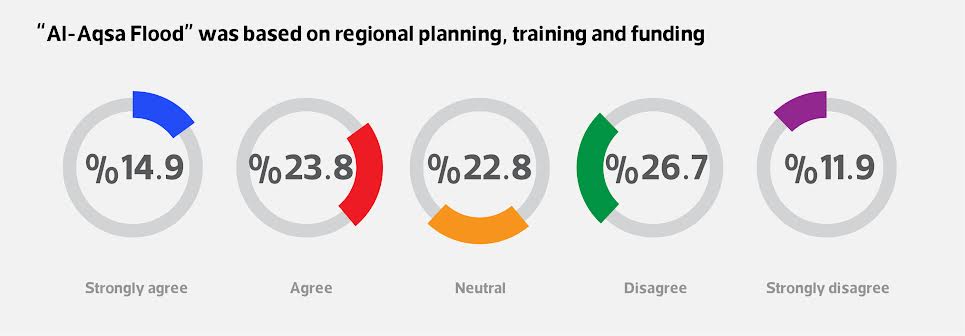
Second Axis: Frustration Increases as the War Continues
The opinion poll results demonstrated that the sample is less optimistic as the war continues. The majority, 75.3%, agreed that the war on the Gaza Strip will be a long-term conflict, 16.8% disagreed, and 7.9% preferred to remain neutral.
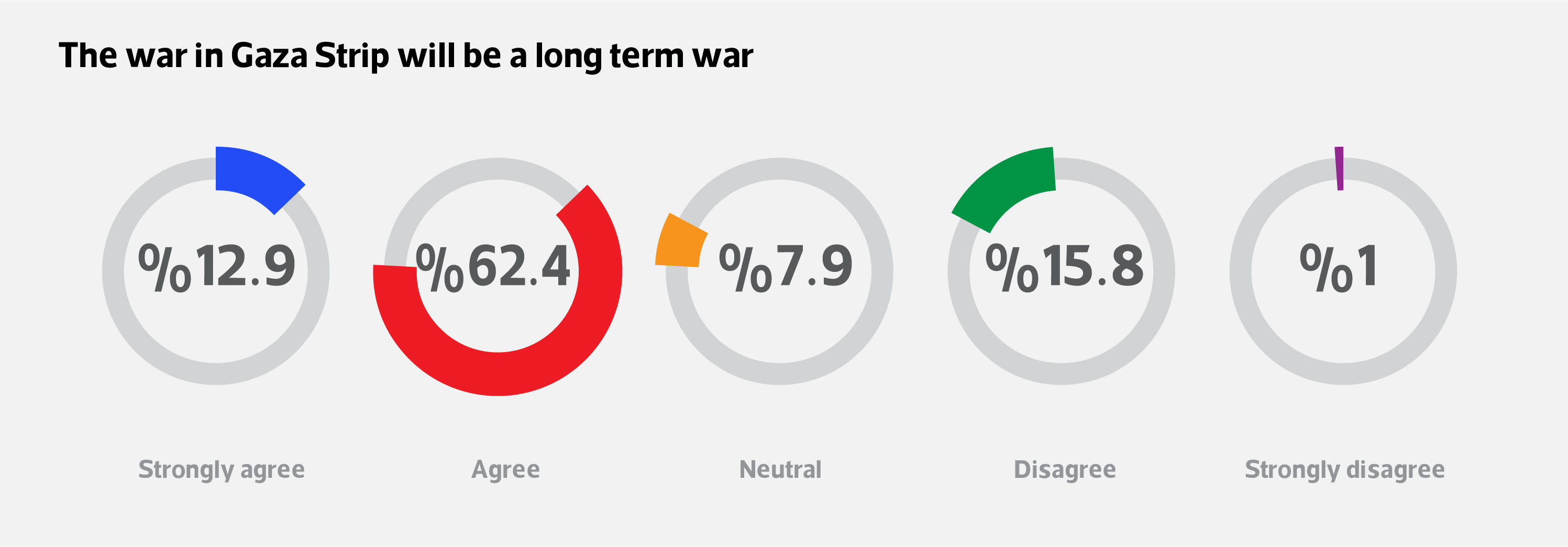
In a similar context, 84.2% of those polled believed that Israel intends to displace the residents of Gaza to Sinai, 11.9% did not believe so, and 4% chose to remain neutral. Additionally, 56.4% of the sample believed that the chances of the war fronts expanding are very high, 24.7% believed otherwise, and 18.8% preferred to remain neutral.
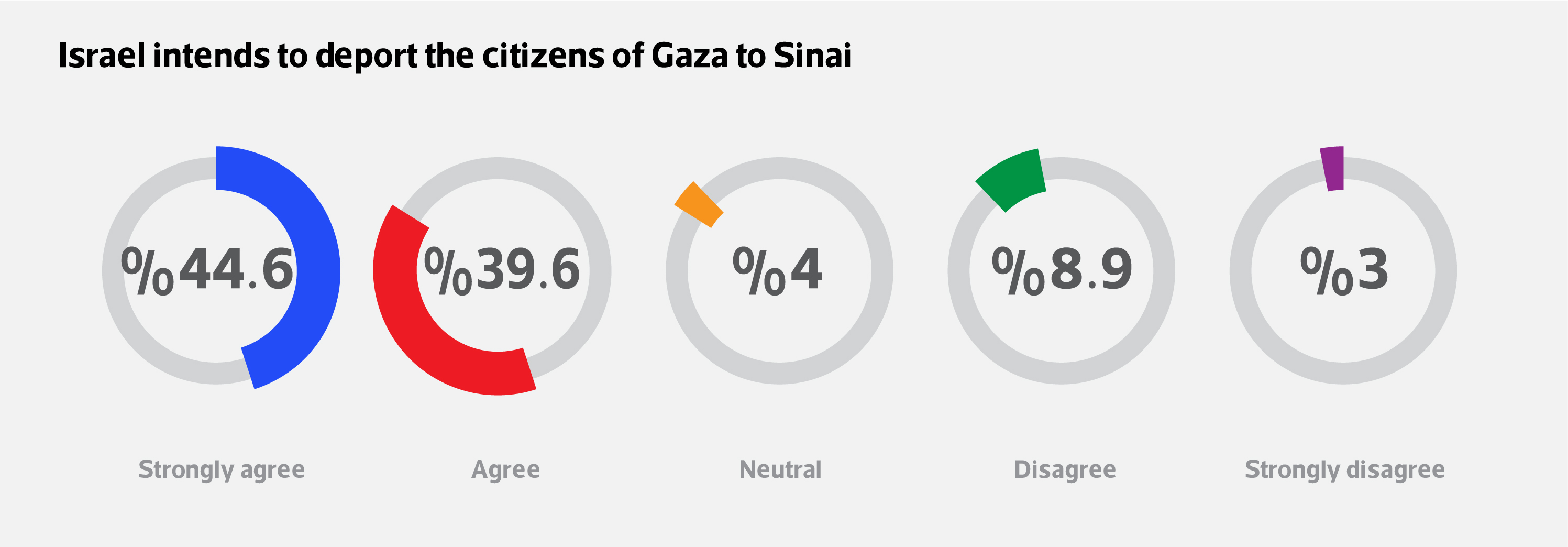
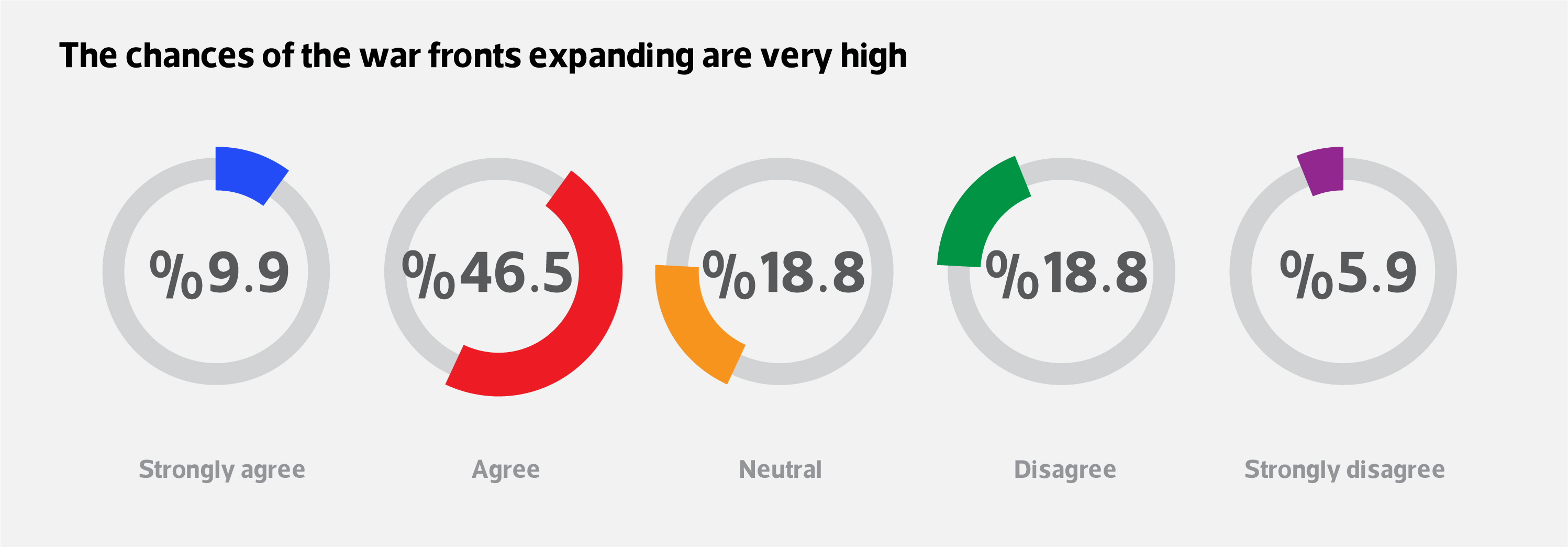
Third Axis: Contradictions and Ambiguity Regarding the War Outcomes
The results of the poll also showed how complex the war is in the Gaza Strip and how difficult it is for Israel to achieve its declared goals, especially the elimination of Hamas. A majority, 77.2%, believed that the goal of eliminating Hamas is unachievable, compared to 13.9% who found it possible, and 8.9% remained neutral. The respondents were less decisive on whether there will be a new administration in the Gaza Strip: 48.5% said no, 24.7% said yes, and 26.7% preferred to remain neutral.
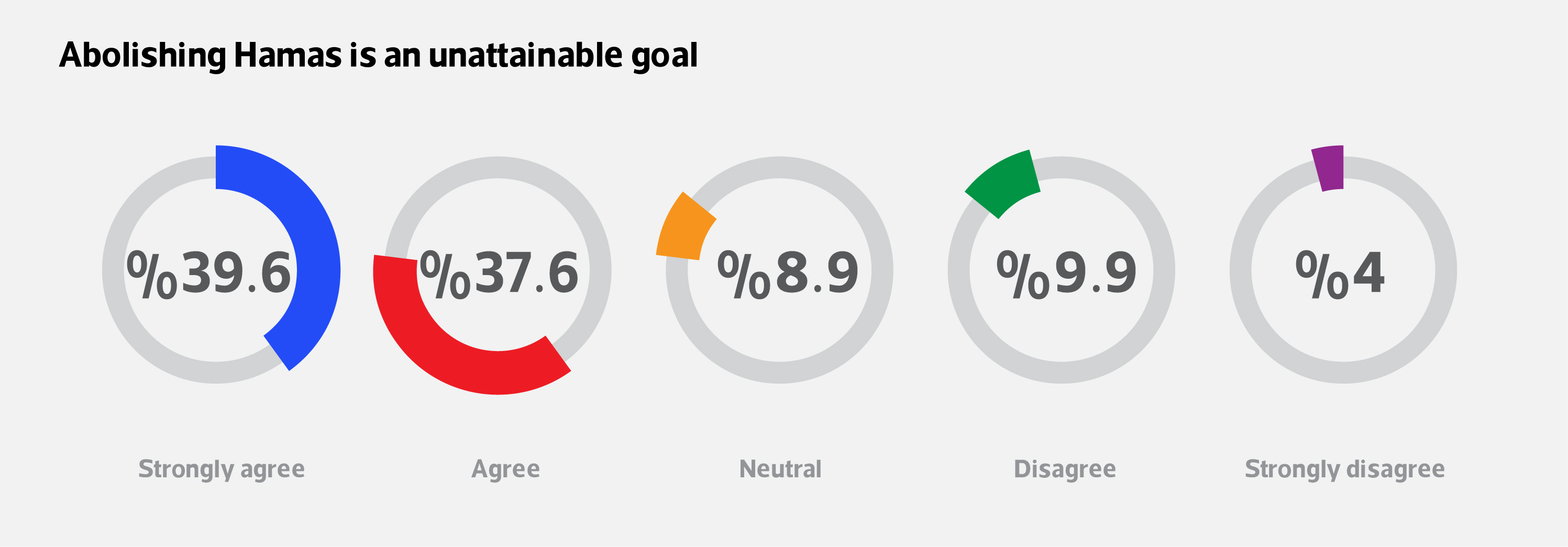
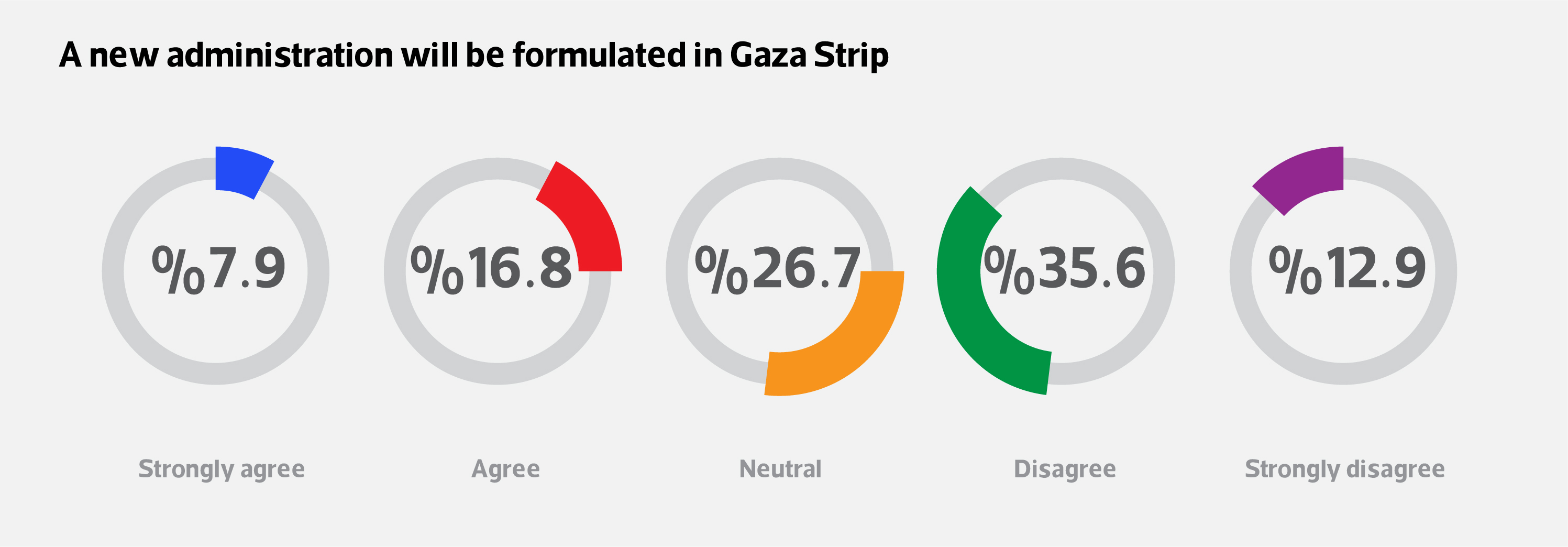
the highest percentage of neutral responses, did not express a firm opinion. In the same context, 54.5% of the sample believed that Israel will not leave the Gaza Strip, even if it achieves its goals, while 37.7% disagreed with the possibility of Israel occupying the sector, and 7.9% preferred to remain neutral.
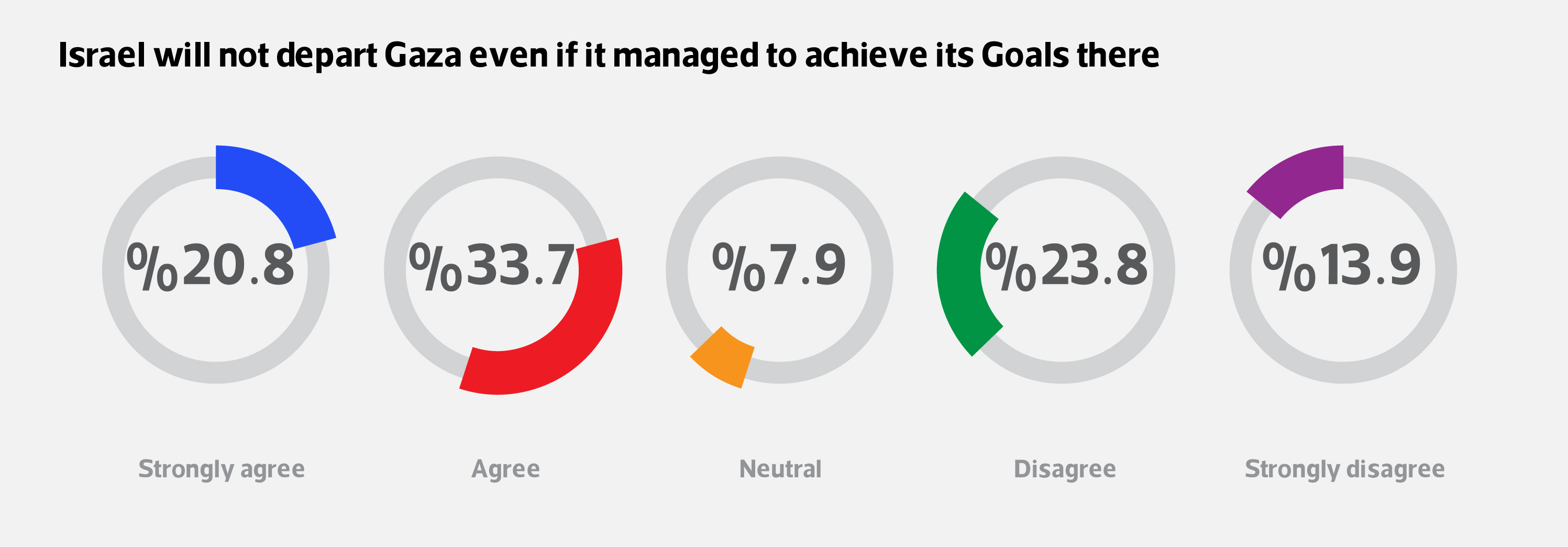
Keep in touch
In-depth analyses delivered weekly.

Related Analyses:







